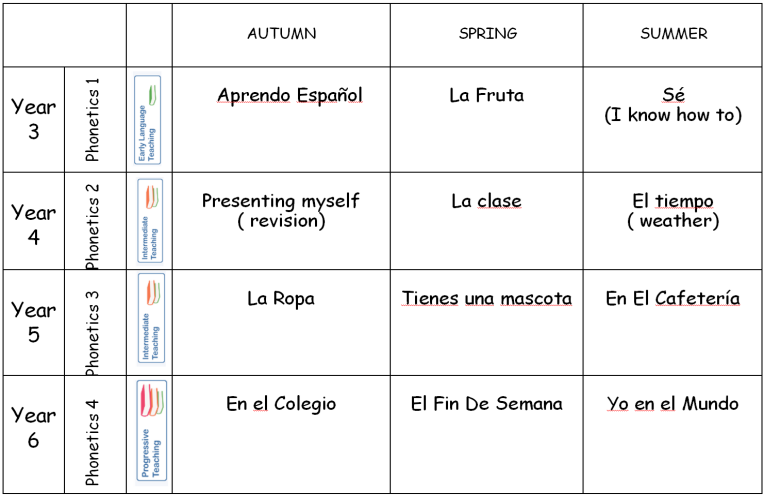Spanish
At St Martin's, we believe that learning a foreign language is an essential part of a broad and balanced education.
Through the Language Angels scheme, we offer a high-quality Spanish curriculum across Key Stage 2, that inspires curiosity, builds confidence, and prepares pupils for a global future. Our Spanish curriculum is carefully structured to ensure progression in the key language skills: listening, speaking, reading, and writing. Pupils learn to communicate in Spanish through engaging topics, interactive activities, and purposeful practice. Lessons are designed to be inclusive and accessible, with differentiated resources that support all learners.
Using Language Angels, pupils explore vocabulary, grammar, and phonics in a way that is age-appropriate and enjoyable. They also gain insight into Spanish-speaking cultures, traditions, and geography, helping them develop respect and appreciation for diversity.
By the end of Key Stage 2, pupils will be able to understand and use familiar Spanish vocabulary and phrases with increasing fluency.
At St Martin's, Spanish is more than a subject—it’s a gateway to new cultures, connections, and opportunities.
Big Ideas
Spanish at St Martin’s is built around the big ideas of communication, cultural understanding, and language structure.
Through Spanish lessons, pupils explore themes such as identity, community, and global citizenship. These concepts underpin vocabulary and grammar development, helping children make meaningful connections between language and the world around them.
Lessons encourage curiosity and confidence, fostering a love of languages and an appreciation of diverse cultures.
Content
We provides a rich and varied curriculum covering phonics, vocabulary, grammar, and sentence structure. Pupils learn to speak, read, and write in Spanish through engaging topics such as family, food, hobbies, and school life. This includes songs, stories, games, and interactive activities that make learning fun and memorable.
Content is carefully chosen to reflect real-life contexts and build practical language skills.
Sequencing
Our curriculum is carefully sequenced to ensure progression and retention. Pupils begin with core vocabulary and phonics before moving on to sentence building and grammar. Each unit builds on prior learning, revisiting key concepts to strengthen understanding.
Our curriculum follows a clear structure from Early Language to Intermediate and Progressive levels, allowing children to develop fluency and confidence over time.
Oracy and Vocabulary
Our curriculum places a strong emphasis on oracy and vocabulary development. Pupils regularly practise speaking and listening through songs, role-play, and interactive games. Vocabulary is introduced in meaningful contexts and reinforced through repetition and visual support. Children learn to pronounce words accurately, use full sentences, and engage in simple conversations, laying the foundation for confident communication in Spanish.
Assessment of Pupils
Assessment is both formative and summative. Teachers use regular questioning, observation, and pupil self-assessment to monitor progress. Each unit includes end-of-topic assessments that test listening, speaking, reading, and writing skills.
These help identify gaps and inform future teaching.
Progress is tracked over time, ensuring pupils are supported and challenged appropriately as they move through the curriculum.
Reasonable Adjustments for Pupils with SEND
Our curriculum is designed to be inclusive and adaptable for pupils with SEND.
Lessons include visual aids, simplified vocabulary, and differentiated activities to support varied learning needs. Teachers can adjust the pace, provide additional scaffolding, and use multi-sensory approaches to ensure all children can access and enjoy language learning. Our MfL offer promotes participation, confidence, and success for every learner.

